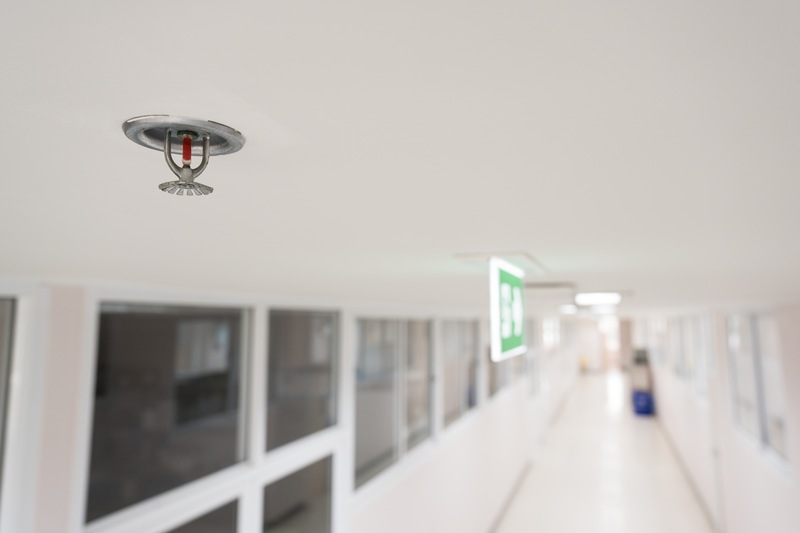
Installing and maintaining fire sprinkler systems is a crucial service that helps save lives and property. However, it also comes with substantial risks that require specialized insurance coverage. This guide will explain the critical insurance considerations for fire sprinkler contractors.
Fire sprinkler contractors face greater risks than typical contractors due to the life-safety nature of their work. Defective installation or failed equipment can directly contribute to property damage, bodily injuries, or even loss of life in a fire emergency. As a result, fire sprinkler contractors tend to see higher claims frequency and claims severity.
Standard general liability insurance policies often exclude or limit coverage for common fire sprinkler risks like design flaws, installation errors, inspection oversights, equipment failures, etc. Without proper coverage, a single mistake could put your entire business at risk of bankruptcy. Specialized policies are necessary to manage the exposures unique to the fire protection industry.
There are three major types of insurance coverage to evaluate for a fire sprinkler contractor business:
While exclusions can limit protections, general liability insurance still provides basic coverage for third-party bodily injury and property damage claims arising from your operations or completed work. For adequate protection, seek policy add-ons to cover common fire sprinkler risks like:
Also, confirm the policy has sufficient limits to cover the major property values you protect.
Professional liability insurance provides coverage for financial harm due to errors like design flaws or inspection oversights. It covers defense costs and settlements for third-party claims alleging professional negligence or failure to perform professional duties. For fire sprinkler contractors, common allegations could include:
These errors may not cause immediate bodily injury or property damage, but they can still create enormous long-term liability risks. Professional liability protection is critical alongside general liability.
Don't overlook the need for commercial auto insurance. Your business vehicles require coverage for collision, property damage, bodily injury, uninsured motorists, hired/non-owned vehicles, and more. Adequate limits are crucial given the equipment transportation exposure.
While the above coverages provide strong protections, beware of common coverage gaps or exclusions to understand your true risk exposure:
Prior Work Exclusions - Policies often exclude coverage for work completed prior to the current policy period. This leaves you exposed for legacy issues. Seek endorsement to cover your past work to limit this exposure.
Equipment Breakdown Exclusions - Many policies exclude equipment breakdown claims. Seek specific endorsement to cover electrical or mechanical failure.
Cyber Risk Exclusions - With increasing digital connectivity of fire sprinkler monitoring systems, data breaches or computer hacking events could trigger massive liability claims which standard policies may exclude. Consider dedicated cyber liability coverage.
Subcontractor Exclusions - If you utilize subcontracted labor, confirm your policy provides coverage for their negligent acts while working on your behalf.
Punitive & Treble Damages - Most policies exclude punitive damages designed to punish egregious behavior. However, some jurisdictions may award triple damages which could also be excluded. Seek endorsement to cover these risks.
Warranty & Service Agreements - Standard general liability policies only cover damages arising from an "occurrence" defined as an accident. Intentional promises like contractual warranties or service agreements could fall outside this scope unless endorsed.
Not all insurance carriers understand the unique risks within the fire sprinkler and suppression industry. It's critical to seek out providers that specialize in fire protection contractors rather than general contractors. Top insurers in this niche space include:
These and other expert carriers offer specially designed coverage endorsements and extensions to plug common protection gaps for fire sprinkler contractors. They also provide value-added risk management guidance and services given their deeper understanding of industry challenges.
Because fire sprinkler work carries substantial liability hazards, insurance is essential but not a complete risk management solution. You should also adopt operational best practices to minimize hazards like:
Documenting rigorous safety protocols and training helps defend against allegations of negligence while also leading to better loss control outcomes.
Installing and maintaining fire protection systems requires assuming significant risks. Standard insurance policies often fail to provide adequate and affordable coverage. By securing tailored coverage backed by specialist carriers, fire sprinkler contractors can manage exposures, defend against claims, and focus confidently on providing life-saving services to their customers.
With the right insurance partner, you can transform these risks into manageable business costs. For customized guidance on fire sprinkler contractor insurance, contact Insurance Solutions of America today.
Previous Article